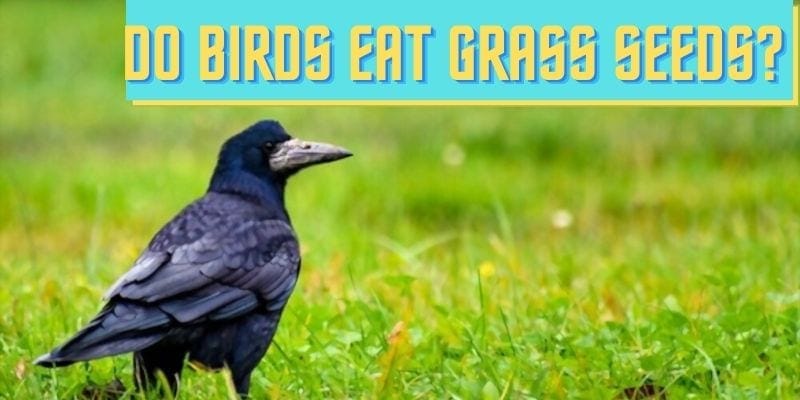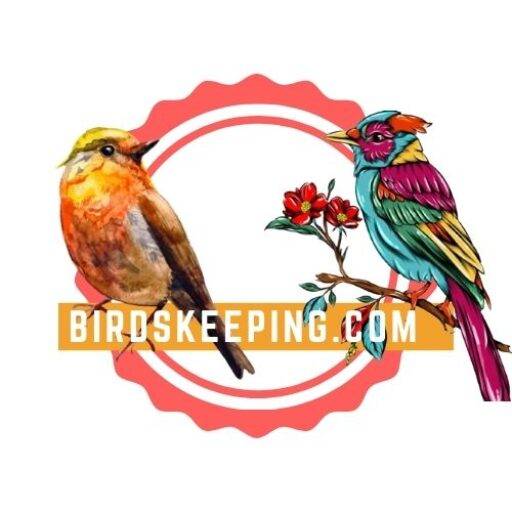Birds are fond of eating seeds, and they do not leave the chance of eating seeds whenever they get the opportunity to feed on their favorite seeds. Many people have asked the question that do birds eat grass seed?
The direct answer to the question is yes, birds eat grass seeds without any hesitation. Many popular birds like to eat them, such as starlings, and finches, including some wild birds. Let us dive into this topic.
Table of Contents:
- Why Do Birds Eat Grass Seeds?
- Is Grass Seed Toxic To birds?
- Do Birds Like Grass Seeds?
- How Do Birds Eat Grass Seeds?
- Do Birds Eat Grass?
- What Birds Eat Grass Seed?
- Will Birds Eat Treated Grass Seed?
- Wrap up
Why Do Birds Eat Grass Seeds?
Birds are everywhere in this world. In this fast-changing world, they find different ways to survive. Now with new technologies and the deforestation of trees, it is getting harder for birds to survive.

Like other animals, when birds are hungry, they will be attracted to any visible food, which means birds are visual animals. Seeds are easily visible to birds, and they are attracted to seeds.
Another reason for eating grass seeds is their solid and stout beaks. Seeds usually have hard skin, and sometimes seeds are coated as well to avoid birds eating them. The process of crushing seed shells is not tough for birds as they have great husky beaks.
Is Grass Seed Toxic To birds?
Grass seeds are visible and hence are a temptation for birds to fulfill their food requirements. Nowadays, two types of seeds are available for grass seeding.
- Uncoated/ Natural Grass Seed
- Coated Grass Seed
Natural grass seeds are non-toxic for bird consumption and are a good food item for birds. Coated seeds have a mixture of pesticides and nutrients.
You Might Like This: Birds That Eat Sunflower Seeds
On the other hand, coated grass seeds are also non-toxic and safe for birds. The only risk for coated seed consumption by birds is that it can cause digestion problems.
The birds don’t eat coated seeds as they will consider it tasteless food due to a hydrophilic coating on these seeds.
Do Birds Like Grass Seeds?
Grass seeds are visible food and smaller in size that can fit easily in a bird’s beak. Uncoated or natural grass seeds are a favorite food for birds as they make them a delicious food item to eat.
Once birds are aware of natural grass seed presence at a place, they will eat without caring for water present in the soil.
Coated grass seeds are often tasteless for birds, and they will avoid eating after their first taste of seeds. For this reason, garden owners prefer to use coated seeds for grass seeding.
How Do Birds Eat Grass Seeds?
Birds are visual animals. So, they are attracted to visible food particles, e.g., seeds in the garden. Birds are fierce eaters, so they pick seeds fast.
When the birds are hungry, they keep on searching for their food in the soil. They like all small-sized food that is good in taste and available in their surroundings.
Birds are usually pollinators. The most common bird pollinators are finch, Robins, hummingbirds, orioles, and buntings. They usually eat from one place and move towards so many places for feeding, so some seeds stick to their bodies and spread and pollinate.
Millet is a grass seed that is very popular among small birds. It has two colors, white and red, and both attract small birds. This seed is smaller than a rice grain. Millet is liked by bunting, juncos, towhee, finches, sparrows, and many other birds also eat.
Do Birds Eat Grass?
Birds like ducks, geese, and ostriches also eat grass. Another bird, hoatzin, has a well-developed digestive system for bacteria fermentation.
These birds have large bodies to digest cellulose. All society’s finches eat moist grass and orchard.
What Birds Eat Grass Seed?
Seeds are an essential part of a bird’s diet, and they have minerals, nutrients, and vitamins. Birds like starlings, sparrows, finches, and blackbirds eat grass seed as their natural food.
In particular ground-feeding birds enjoy eating grass seeds because they are tasty and easy to devour. Birds prefer seeds with a thinner shell but eat all varieties if they’re too hungry.
However, these grass seeds are covered with bird resistance. Then the hungry birds can feed on the seed after overwhelming the detestation to the bird resistance.
Will Birds Eat Treated Grass Seed?
There are some chemical treatments developed to repel birds. Seeds crop up pre-treated to make these seeds harmless with an unpleasant taste to prevent birds.
Some non-chemical treatments are also used for birds to keep away from seeds. If repellent as scarecrows are used, they are largely unsuccessful.
Birds get familiar with this and will come closer at last once one bird comes closer and realizes that there is no danger. The entire group gets the message, so they come down safely.
Birds are afraid of objects like weird noises and whirls. Keeping birds away from seeds, tape flashes in the sunlight, and hums in the wind are used. More alternatives for scaring birds contain brightly colored flags and children’s windmills.
There are chances that the congregation of birds will not clean out the entire seeded area. Even knowing this, it can’t hurt to add a little extra protection. Straw mulch is used to reduce the accessibility of seeds for birds.
Fake predators like rubber snakes on the soil and models of hawks on fences are also used to keep away the birds from grass seeds despite how these seeds look tasty to birds.
Some bird repellent seeds, coated with a substance that tastes bad to birds, are also used for sowing with grass seed which might be needed to prevent birds. So, the birds will not eat treated seeds.
Wrap up
Birds do eat grass seeds, and they easily get attracted to the grass seeds. This article will help you to keep birds from eating grass seeds.
All information above will give you knowledge about what birds eat them, and you will have complete knowledge that will help you get rid of this problem.
Birdskeeping is supported by its readers. When you purchase through links on our site, we may earn an affiliate commission. Also, as an Amazon affiliate, we earn from qualifying purchases without costing you extra.
